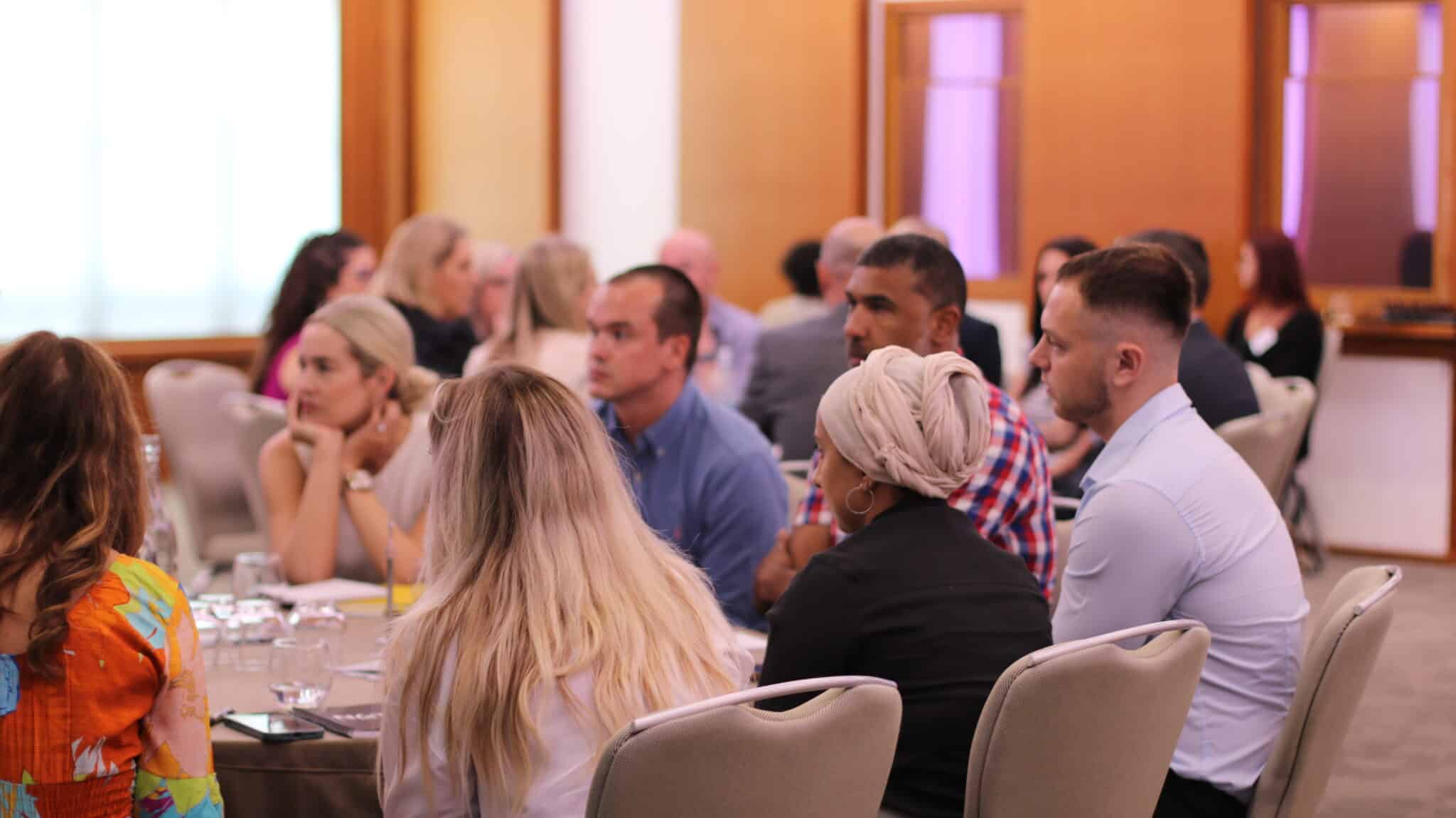Ken Brotherston, CEO at TALiNT Partners, sat down with John Wilson, CEO at WilsonHCG, to talk about its latest acquisitions, and international talent markets. John is an award-winning specialist in workforce planning, culture and engagement strategy as well as RPO.
KB: You’ve been busy, John. Congratulations on acquiring Personify. This is your third big deal in 12 months.
JW: Yeah, this one’s been interesting because we’ve been chasing it for five years. And finally, it’s come through. If you’d told me at the beginning of 2022 that we were going to finalise three acquisitions in 12 months, I’d have said that that was not going be the case.
KB: All the companies are quite different; there’s Personify, Claro, the analytics business and Tracking Talent. How do the three of those tie into WilsonHCG’s strategy and wider view of the market?
JW: Great, great question. Claro was one that we had been using internally for years and we started seeing ourselves utilising it much more than we were utilising LinkedIn. When we were talking to clients, we were able to provide them with data and insights that were far beyond anything we were getting in any other source, and that was pre-acquisition. So once we were able to bring Claro into our platform and really start optimising it with client input, it’s become an incredibly important tool. For example, over the last year or two, many companies heavily overpaid for talent and Claro can help you avoid this because of huge amounts of labour data and its ability to see how people are migrating and moving in the workforce. In the overall business community, the need for talent acquisition to get much smarter is there. It has to happen. I think we’re close with Claro data and so are many of our clients, and I know how much it has impacted our clients’ ability to make the right decisions.
“We are able to find out why people are leaving and where they are they going. We have the ability to break that down into teams, too.”
KB: What are two key things that you think it really helps you help your clients with?
JW: It quickly sees where the talent is and identifies turnover trends. We are able to find out why people are leaving and where they are going. We have the ability to break that down into teams, too. For example, if a leader is the reason they’re leaving because this entire team component is leaving, we’re able to get that kind of data. Identifying those trends before they take hold is critical.
KB: Why was Tracking Talent so attractive to you?
JW: Tracking Talent is an interesting one. We did an analysis on productivity across the globe on all of our people and South Africa was right at the top of that list. Had you would asked me before we conducted this study, I don’t know if that would have been my number one pick, but it was definitely at the top of the list. Given that, the decision to make Tracking Talent part of our offering made perfect sense for market intelligence purposes.
KB: You’ve been tracking Personify for five years. Obviously it’s an interesting sector, but what was it about that business that was particularly interesting to you?
JW: We have never really looked at RPO as something we wanted to acquire because we always felt like we couldn’t build it ourselves. There are so very few RPOs out there that are really focused on what I think are the critical things: your people, your clients and doing things to add value, not the BPO aspect of it which I think starts cheapening what we do. Personify had always shared our vision, even though they’re much smaller.
The healthcare and life sciences world became more and more exciting for us as an acquisition target, and as we got to better understand the cultural connection with Personify, this made it really attractive to us. Also, that sector is very robust and I think very unlikely to be affected by whatever economic turbulence we might have to face for the next year or two. Even with the pandemic at full throttle, those are always growth periods for not just Wilson, but for RPO in general.
KB: So, what is the overarching strategy for your business?
JW: In a lot of ways, it’s to keep doing what we’ve been doing, but listening to the clients and listening to our people is really key and continuing to act small even as we get bigger. I think that’s a key point. From an M&A standpoint our strategic outlook is about how we are to provide better value to our clients.
KB: What is it that that you think your clients most value?
JW: Such a great question and if I look at our client base and every industry that we’re in, we typically have the industry leader and there’s a reason behind that – they value talent. It’s about offering a white glove service that makes people feel like they’re not an outsourced provider. It’s making them better.
KB: And are you doing more to help clients with internal mobility and their broader skills agenda? Because as you know there is a move away from hiring for experience to hiring for skills. I’d be interested in how you’re responding to that.
JW: For one of our clients, we built an entire internal platform centred around the phrase ‘quit your job, not your company’. So every time they log into their portal, they actually see two jobs that are available for them internally. Because of what we experienced in 2021 and parts of 2022, organisations were over-hiring in a way that was ineffective. Therefore, internal mobility becomes more and more important. Our consulting group is probably 75% focused on internal mobility inside our clients right now, which is something I’ve never experienced in my career before.

KB: Are you finding that clients are willing to pay for that because historically RPO used to give it away. Now they’re saying, ‘We want to help you with internal mobility but we need to charge you’. Clients are then saying, ‘Well, you’ve given it to me for free for the last five or 10 years…’How are you overcoming that?
JW: It’s definitely become more data-driven. With Claro we are able to determine that an organisation is misaligned in its hiring, or, for example, someone is underpaid by $30k. They won’t be happy, but the data tells the story. I feel another major trend coming out of this is what people call ‘boomerangs’ or people who come back into the organisation. I’ve always found it odd that when someone leaves, they’re treated as if they’re gone, never to return. But if you’re a salesperson with a client you’ve had for a while, and then suddenly they’re not your client anymore, they’re still considered a prospect. Talent should be treated in the same way. Thinking on this needs to change, in the same way it has with internal mobility.
“It’s about offering a white glove service that makes people feel like they’re not an outsourced provider.”
KB: I’ve always said that if you can’t fix attrition, you’re never going to fix attraction. If in an organisation people are leaving through the back as fast as you’re bringing them in the front door, it’s just not a good existence for anyone. Some traditional staffing firms entering the RPO market are just looking to do it in the cheapest way possible. How will you deal with that?
JW: That is a threat and you’ve hit the nail on the head. Many more staffing providers are saying they do RPO when they actually don’t, and that’s the threat. And any time I hear of a bad RPO engagement the first question I ask is, ‘Who did you use?’ because it’s typically a company that you’d expect that to happen with.
KB: Are there any other deals that you might be looking at in 2023 or is this it for now? Are you still open to more?
JW: I hope so. If we see something that is of significant value, we would obviously be very interested.
KB: And what might that look like? What would the characteristics be?
JW: I believe there is opportunity for us in parts of South America. Geographically, we have an interest there and while we have coverage there, it’s not as deep as it could be.
KB: Do you worry about some of the AI-led tech firms focused on skills eating your lunch or do you see them more as partners?
JW: Definitely as partners. If you go back five, eight years, when everyone said that LinkedIn was going to be the end of recruitment firms, people forget the importance of having skilled people doing skilled jobs. We’ve heard that AI is going to be the end of the recruiter but no one is talking about those things anymore.
KB: I know you were previously looking enthusiastically at China as a market, but do you feel that market has grown cooler?
JW: We were really close to making a big investment in Shenzhen but pulled off that when the lockdowns occurred. Our focus in China right now is mostly on Chinese companies and supporting those, because we’ve definitely seen the West pull back.
KB: It feels like that’s quite a long-term thing that’s not going to be 12 to 18 months, so to finish, what’s your big prediction?
JW: We have seen more and more of our clients looking at alternative locations for manufacturing. Probably Mexico. Mexico wasn’t on the radar five years ago, and I think if we look forward to five years from now, Mexico could yield very high growth.
“Staffing providers are saying they do RPO when they actually don’t.”










